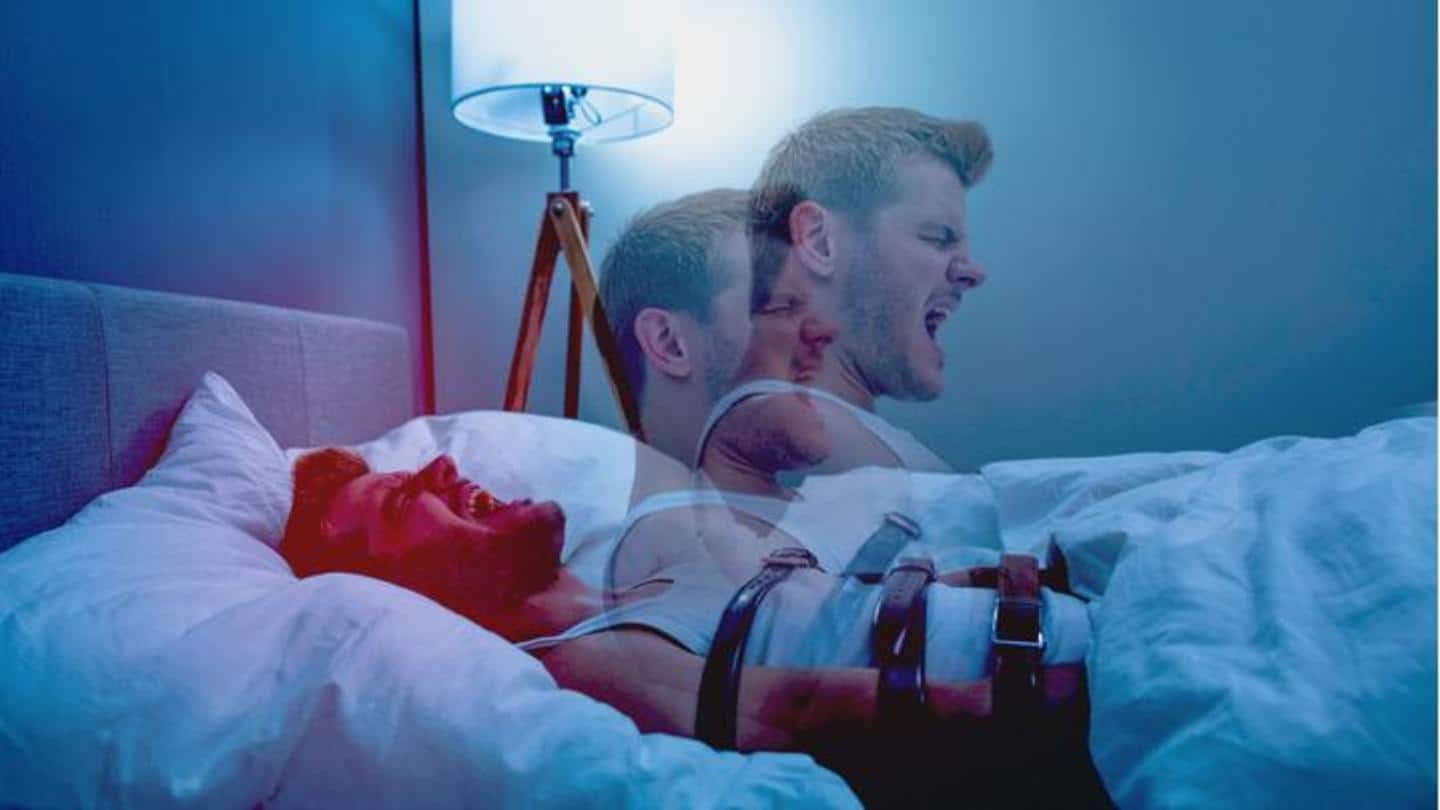
All about sleep paralysis: Causes, symptoms and prevention
What's the story
Sleep paralysis is a condition where you feel conscious and active while sleeping but are unable to move or speak. It takes place when a person is between the stages of wakefulness and sleep. This state usually lasts for one or two minutes. During sleep paralysis, a person may experience audio and visual hallucinations which can also lead to stress.
Context
Here's what our expert says
Sleep paralysis is the feeling of inability to move while the brain feels awake during the beginning or end of sleep. It is a phenomenon experienced due to the deep relaxation of skeletal muscles while the brain is active and still has not caught up with deep sleep. While mostly it is a normal occurrence, sometimes it may be associated with a sleep disorder.
Definition
What exactly is sleep paralysis?
While sleeping, your body relaxes and the voluntary muscles are still which prevents you from injuring yourself while acting out in dreams. During sleep paralysis, you may wake up when your body is still relaxing. It occurs between waking and sleep and can lead to other sleep disorders like narcolepsy. This condition starts during adolescence and gets worse during the 20s and 30s.
Symptoms
What are the symptoms?
The most common symptom of sleep paralysis is the inability to move or speak. Other than this, you may also feel pressure on the chest, experience difficulty in breathing, have hallucinations and sensations, sweat, and feel as if something is pushing you down. It can also lead to muscle aches, headaches, paranoia, feelings of fear, and feeling as if you are going to die.
Causes
Causes behind sleep paralysis
During sleep paralysis, the body's transition to or from rapid eye movement (REM) sleep is not in sync with the brain. Your body alternates between REM and non-REM. Narcolepsy, irregular sleeping patterns, and a family history of sleep paralysis can trigger the condition. Insomnia, obstructive sleep apnea, post-traumatic stress disorder, bipolar disorder, depression, migraine, anxiety disorders, and hypertension can also cause sleep paralysis.
Prevention
How to prevent this condition
Improve your sleep hygiene and manage your stress to tackle the condition. Avoid blue light exposure before sleep, and try to sleep for at least six-eight hours daily. Maintain a dark and temperate bedroom, reduce light exposure in the evening but get good daylight exposure during the day. Exercise regularly, practice yoga, and try sleeping on your side instead of sleeping on your back.